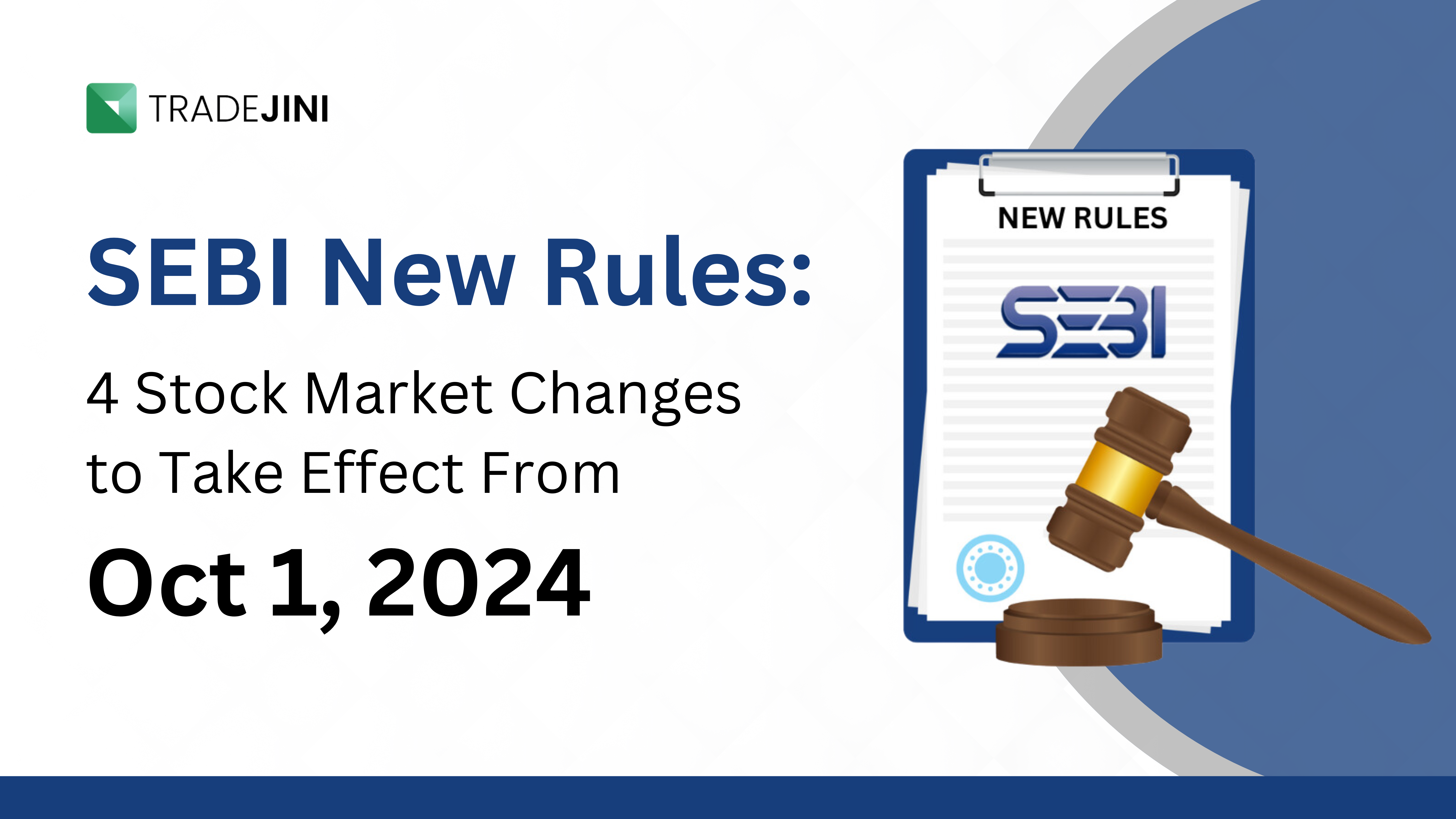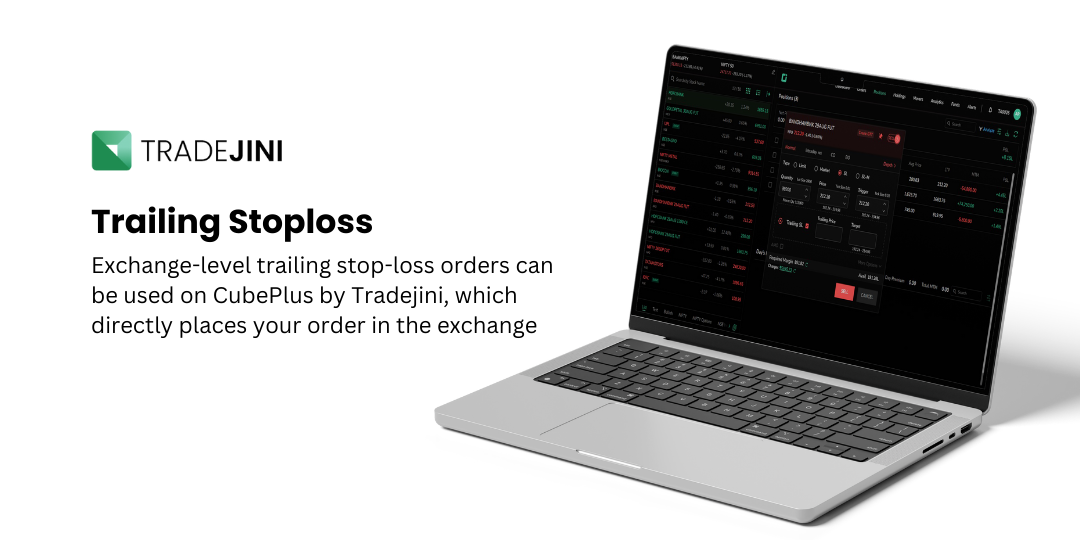As announced by the SEBI (Securities and Exchange Board of India) recently, the Indian stock market is going to witness numerous changes, effective from the 1st of October 2024.
But what are these changes? How is this shift going to impact the stock market? If you have these questions in your mind, here is a brief guide for you.
Let’s understand these changes in detail and learn how they aim to make the stock market more efficient. If you are an investor or a trader, you cannot afford to miss out on these new stock market rules set by the SEBI.
New Transaction Fees
One of the biggest stock market changes with these SEBI new rules is the revision of transaction fees on the National Stock Exchange (NSE) and the Bombay Stock Exchange (BSE). So, starting from 1st October 2024, both stock exchanges will charge brokers the following:
NSE Fee Structure
| Segment | Transaction Fee (per ₹1 lakh traded value) |
| Cash Market | ₹2.97 (both sides) |
| Equity Options | ₹35.03 (both sides) |
| Equity Futures | ₹1.73 (both sides) |
| Currency Futures | ₹0.35 (both sides) |
| Currency & Interest Rate Options | ₹31.10 (both sides) |
BSE Fee Structure
| Contract | Transaction Fee |
| Sensex & Bankex options | ₹3,250 per ₹1 crore premium turnover |
| Other equity derivative contracts and
Sensex 50 options and stock options |
No changes- ₹500 per ₹1 crore of premium turnover |
| Index and stock futures | No changes |
Also Learn: CE and PE in the Stock Market: Differences, Calculations, Strategies, and Risks
How would this impact traders?
These SEBI new rules have been introduced to make the fee structure consistent across the board. This would create a fair system for large and small brokers. Moreover, with this, brokers would know how much fees they are paying now as brokers are required to pass these fees to clients without any hidden costs.
Also Learn: India’s Stock Market and the 2024 Iran-Israel Conflict: Potential Impacts
Changes In Share Buyback Taxation
Another big change in stock market rules is the change in taxation on share buybacks. But wait, what is a share buyback? Well, when a company repurchases its shares from shareholders, it is called share buyback.
As per SEBI's new rules, shareholders now need to pay tax on buyback proceeds based on their income tax bracket. So, the change is:
| Old System | New System, Effective from October 1, 2024 |
| The company pays tax on buyback | Shareholders pay tax on buybacks based on their income |
How would this impact traders?
With this change, the tax burden would move from companies to shareholders. And this would eventually allow companies to use their funds more freely. However, the companies also need to plan for potential tax implications as shareholders may now refrain from participating in share buybacks.
T+2 Bonus Share Trading System
The trading process for bonus shares is also set to speed up as per new SEBI stock market rules. So, from October 1, the new T+2 trading system will be implemented, with which bonus shares will be credited and available for trading within two days of the record date. This is also the cut-off date to check which shareholders are eligible for the bonus shares.
How would this impact investors?
By reducing the time taken for bonus shares to be available for trading, SEBI is making the market more efficient. Investors will now have faster access to their bonus shares, which will make it easier for them to sell or hold their shares without unnecessary delays.
Learn About: What Is the Stock Market and How It Functions in India?
Increase in Securities Transaction Tax (STT)
If you are someone who trades in futures and options (F&O), then SEBI has a new rule for you. As per SEBI's new rules, the Securities Transaction Tax (STT) for futures trading will increase from 0.0125% to 0.02%. On the other hand, for options trading, the STT will be 0.1% of the premium value.
How does this impact the traders?
This change in taxation is made to reduce speculative trading. Moreover, as futures and options are considered risky, this tax increment would discourage traders from engaging in too many short-term speculative trades. As a result, this could lead to lower trading volumes and traders may shift to less risky investment options.
Conclusion
So, these are the major changes the investors and traders are going to witness from 1st October 2024, as per the new stock market rules. Whether it is new transaction fees, new share buyback tax rules, higher STT on derivatives, or faster trading for bonus shares, changes have been made to improve efficiency in the stock market.
Are you looking for a reputed platform to trade smoothly? Download the CubePlus app by Tradejini. With the help of the app, enjoy affordable brokerage services. You can also track and trade easily with real-time data and alerts.
Also Read: Understanding Stockbrokers: Definition, Types, and More



